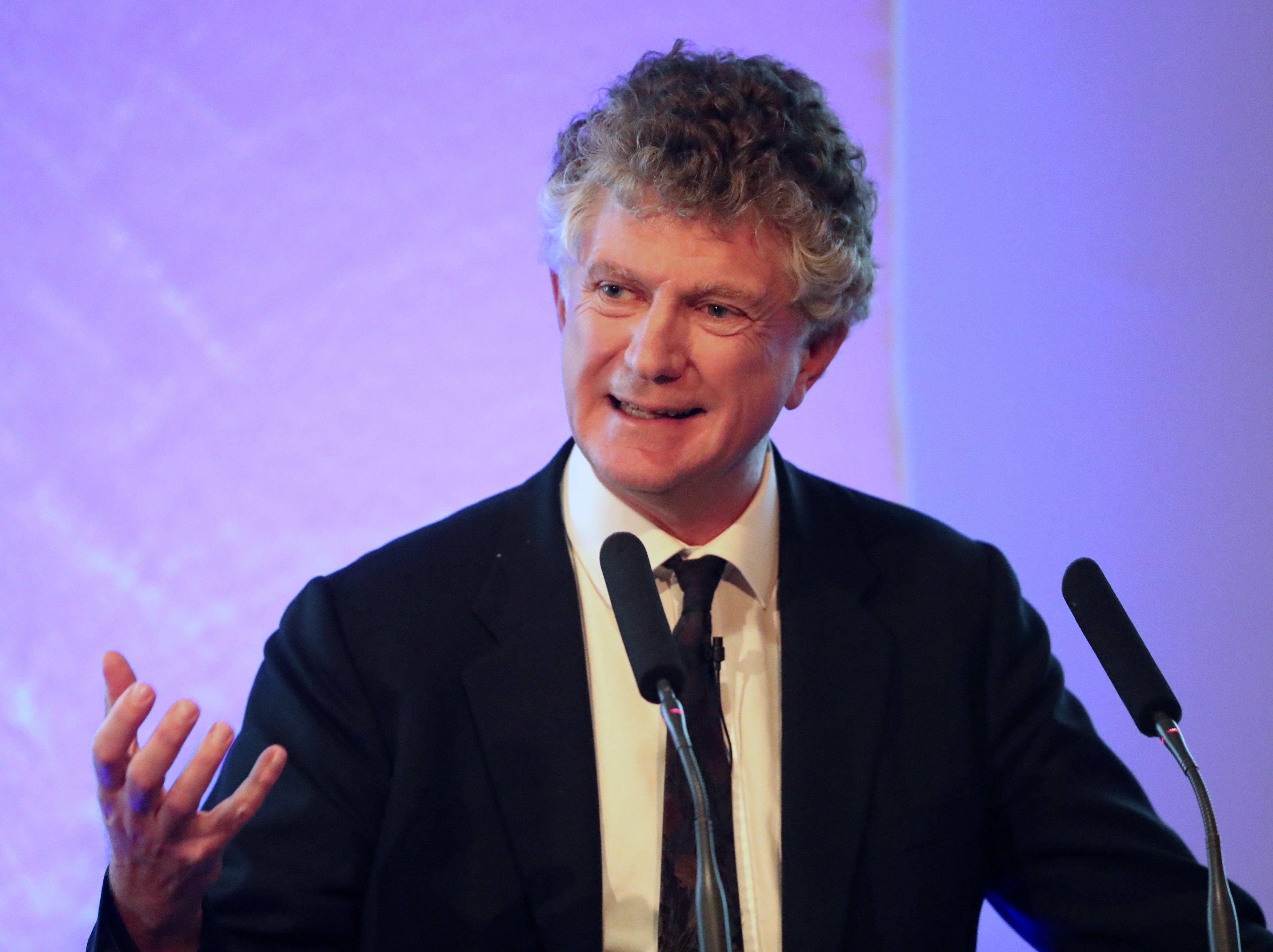Jonathan Powell’s diplomacy on Ukraine is proof the Starmer government is in safe hands
Blair’s chief of staff is back, writes John Rentoul, lending his knowledge and reliability to an inexperienced prime minister, and providing reassurance at a tense time that there is someone in No 10 who knows what they are doing


Jonathan Powell, the UK national security adviser, was “intimately involved” in helping Ukraine and the US reach a ceasefire deal to put to Russia, according to government sources reported by the BBC.
He travelled to Kyiv at the weekend to talk to Volodymyr Zelensky and to help the Ukrainian team draft a written proposal. This was the basis of the deal agreed by the US in Jeddah, Saudi Arabia, on Tuesday. It led to the US resuming intelligence sharing and military support for Ukraine, and it “puts the ball in Putin’s court”.
We do not yet know what the Russian side will make of it, but just to get this far is a significant diplomatic achievement. It suggests that Keir Starmer was wise to bring Powell, who was Tony Blair’s chief of staff throughout his premiership, back into the heart of government.
The prime minister told the Commons today that his team started work the moment Donald Trump suspended military support for Ukraine: “I won’t detail everything that was involved over the last week,” he said, “but I can assure him that a huge amount of hard work, discussions and diplomacy was used with all of our allies and others to ensure that we could get yesterday [in Jeddah] to go as well as we hoped it would.” Powell was central to that effort.
When Starmer turned to Powell, 68, as one of several retreads from the Blair government, some people had their doubts. Powell’s role as a negotiator of the deal to hand over the Chagos Islands to Mauritius with a lease on the US base on Diego Garcia earned him the disapproval of the Conservatives. His return to government, along with Peter Mandelson, Alan Milburn, Michael Barber and Liz Lloyd (Powell’s deputy chief of staff in Blair’s No 10), brought Starmer the disapproval of the Blair-hating minority in the Labour Party.
But Powell has already proved his worth, as someone who understands government and in particular the national security apparatus at the heart of it. He has the experience, the networks, the judgement and the negotiating skills that Starmer needs – and he is a large part of the prime minister’s growing confidence on the international stage.
Even the Chagos Islands deal – still shrouded in some national-security mystery – seems to have been given the go-ahead by the Trump administration, much to the chagrin of some of the Trump-whisperers to British journalists.

Powell has two qualities that make him the right person at the right time for the Starmer government. One is his record of a decade in No 10. I described him in a profile in 2003 as “driven, devoted and discreet”. In an unusual family dynamic, he made himself as indispensable to Blair as his brother Charles, 15 years his senior, had been indispensable to Margaret Thatcher.
Charles was notionally a civil servant as Thatcher’s foreign affairs secretary but became a fiercely loyal personal aide. According to one former top civil servant who worked with them both, “As with Charles and Thatcher, Jonathan was totally reliable in conveying what Blair wanted.”
The other quality that Powell brings is his work since Downing Street, acting as a mediator in conflicts around the world. Building on his experience in helping to negotiate the Good Friday Agreement as Blair’s personal emissary, Powell developed his view that peacemakers always have to talk to terrorists in the end, so they might as well do so from the start.
His thoughts were set out in a 2014 book, Talking to Terrorists: How to End Armed Conflicts, which was controversial for implying, although it did not name Isis, for example, that Western governments should be prepared to negotiate with anyone.
This is an argument that could apply to the problem of handling Putin. The Russian dictator is a monster in the grip of extreme ideology, and yet Powell would, I assume, believe that it would be possible to make him feel that he was getting something out of a deal – just as the IRA came to feel that they had an interest in the Belfast/Good Friday agreement.
This is quite a remarkable second act in Powell’s life. A “striver”, as his brother called him, he was a Maoist at his private school, King’s Canterbury, and was always, unlike his brother, on the left. A holiday job as an under-gardener at the British embassy in Washington led to a career in the Foreign Office that took him back to the embassy as the political secretary who spotted the potential of Bill Clinton at an early stage.
Powell used to list his recreations in Who’s Who as “hyphenated sports” – I can think only of cross-country skiing – although later editions said: “sailing, climbing and tennis”, none of which is hyphenated.
In the Blair government, he invented the modern role of the “political” chief of staff to the prime minister and made it work so well, despite the jealousy of the senior civil service, that it has been maintained by every prime minister since.
Now he is back, lending his knowledge and reliability to an inexperienced prime minister, and providing reassurance at a time of tense world affairs that there is someone in No 10 who knows what they are doing.
Join our commenting forum
Join thought-provoking conversations, follow other Independent readers and see their replies
Comments
Bookmark popover
Removed from bookmarks